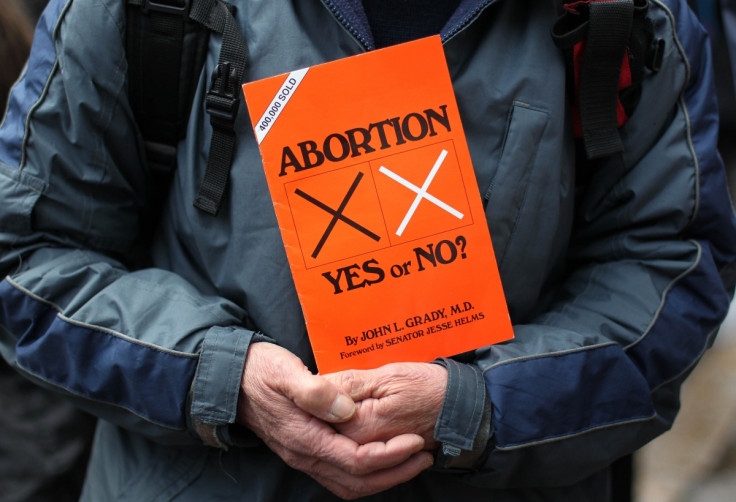Abortion in Northern Ireland: We need to end the hierarchy of 'good' and 'bad' abortions

A near-outright ban on abortion in Northern Ireland may be lifted after a landmark ruling by the Belfast high court found the legislation to be in breach of human rights law. A breakthrough in a country which has sat at the centre of the abortion debate in Britain, the judgement may lead to women being allowed to have abortions in local hospitals in cases of rape, incest and fatal foetal abnormalities.
This is not the end of the abortion debate in Northern Ireland, however. Public pro-abortion narratives are often centred on these kinds of issues – victims of sexual assault and the pregnancies that put the mother at risk. But while today's breakthrough ruling is a monumental moment for Northern Ireland, it also plays to discriminatory attitudes that tell women whether their abortion is socially acceptable or not. To truly shut the door on the abortion debate, we must end the moral hierarchy of "good" and "bad" abortions – and legalise the procedure full stop.
Today's ruling is undoubtedly progress in the fight to ensure abortions are a free-access medical procedure in the country, the only part of the UK where the 1967 Abortion Act does not apply. The devastating effects of the prohibition on abortions are well-documented, from the women who buy unsafe, illegal abortion pills online to the thousands forced to come to England to pay £2,000 for a private termination. A change to Northern Ireland's laws would cut down on the number of women forced to continue with a pregnancy they cannot cope with – but it won't end the problem.
Women seek abortions for a number of different reasons, whether it is financial reasons or simply because they do not want a child. Yet prejudice around abortion still dictates whether a woman's choice is legitimate or not. This fuels discriminatory attitudes and stigma, problems which prevail in countries that legalised abortion decades ago.
A broad range of women's experiences are erased when we talk about abortions. There are certain narratives which are deemed easier to justify – such as circumstances when a woman has been sexually assaulted, or when a foetus is unlikely to survive to birth. But so many women are forced to internalise their experiences because they feel they will be judged for their choices. Talking about abortion is difficult, but it is especially hard if your story does not fit neatly into the allotted narratives.
Stigma, as a result of this hierarchy, means women are still forced to stay silent for fear of ending relationships with family and friends or being harassed, most commonly, online. It encourages shame and isolation at a time when support is likely needed the most.
It is inherently sexist to force women to provide a worthy "reason" to be allowed an abortion. It is proof that society is still uneasy with leaving such a significant decision with the woman seeking the abortion, endorsing the belief that women are unable to make decisions regarding their own bodies. Limiting abortions to those with certain experiences serves only to curtail women's reproductive freedoms, drawing a line between misfortunate "good" women and "bad" women who could have prevented the pregnancy. Abortion is then framed as a mercy bequeathed on a woman who has committed the crime of having had sex.
If only women who are victims of sexual crime or cases of foetal abnormality are entitled to exemptions under Northern Ireland's law, we further entrench the view that only some women are deserved an abortion – a flaw which undermines safe, legal abortion as every woman's fundamental reproductive right.
© Copyright IBTimes 2024. All rights reserved.






